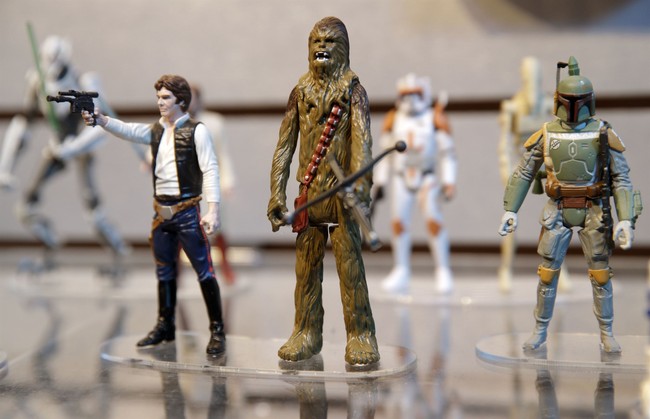
If there is one word that can be used to describe “The Acolyte,” the latest series released on Disney+, it would be “polarizing.” When it comes to impressions from those who have seen the series, there is zero middle ground. Either we see the militant defense of the series, or there is fervent opposition to how the show bastardized the “Star Wars” canon.
We can get a feel for how this is trending by the fact series creator Leslye Headland is attempting to recast the interpretation of her program. As predicted in prior coverage of this show, we have seen the exact “Disney Formula” followed step-by-step:
-
Create a blatantly woke product
-
Preemptively respond to non-existent complaints
-
Experience low interest in the product
-
Lash out at the audience as being intolerant
Ms. Headland appears to be adding an additional step: denying what fans are complaining about actually exists. This has to be a sign that they are feeling the pushback and the failure of the product.
One example of this polarity is seen on Rotten Tomatoes, where critical favor has been consistently high but the audience scores have plunged into the low double digits. Of course, this also reflects the coordinated efforts of many to review-bomb the show, so it cannot be regarded as a true portrayal of impressions. But one more accurate metric is the audience figures.
What has been clear is that the popularity of “The Acolyte” is in dispute. When it debuted, the show received decent audience figures. The 4.8 million viewers in its first 24 hours were the highest seen on the platform this year. However, that interest quickly waned. After five days, that total was just over 11 million, placing it below the five-day totals for a previous show used as a comparative, “Ahsoka,” which was regarded as mildly disappointing.
Episode #3 saw perhaps the largest backlash, as the plot saw the story telling us the twin characters in the lead had been created through an immaculate conception and were reared by lesbian witches. Episode #4 saw “They/Them” dialogue spot-welded into the script, and the derision extended. What is perhaps most telling is that those audience measurements that were next-day available, when they looked promising, are now next to impossible to find for these later episodes. The company is working to stem vocal criticism of a self-created mess.
Not watching the woke CRAP.
Disney’s news Star Wars ‘The Acolyte’ features pronouns: “Is he or they with us?” pic.twitter.com/cCY1rEGDwa
— Radio Australis (@freedom4UU) June 20, 2024
So while social media has been a roiling cauldron of mockery and contempt, we now are hearing back from the production. Lead actress Amandla Stenberg released a song addressing the alleged racism and homophobia she is said to have received. Now Ms. Headland has issued her impressions of the reactions and delivers a curious response – denial of content.
“To be honest, I don’t know what the term ‘gay’ means in that sense,” admits Headland, adding, “I don’t believe that I’ve created queer, with a capital Q, content. They’re in a matriarchal society. As a gay woman, I knew it would read that their sexuality is queer, but there also aren’t any men in their community.”
“So a closeness between the two of them would be natural. It seemed plot-driven.” She adds: “I would say it’s really reductive to call them lesbians. I think it means you’re not really paying attention to this story.”
This is revisionism, pure and simple. Start with the fact that last year, during production and pre-promotion, Headland was touting this as a queer/lesbian/gay venture. The casting of the show is also reflective of this reality, as not only are the primary characters all female, but the cast is composed of a heavy dose of LGBT performers. Along with Headland, Stenberg identifies as non-binary and gay, we see Headland’s wife Rebecca Henderson in a lead role, as well as the gay actor Charlie Barnett.
This is not a case of checkmark counting on my part — these were realities touted in many of the advanced promotional pieces and interviews. So we have gone from this being touted as a gay-centric enterprise to now saying anyone noticing this is acting in bad faith – all while remaining true to that vision. We see Headland struggling with this reality as she attempts to have it both ways.
“If my content is called queer, I don’t want to disown whatever queerness is in the show. I would be proud to create something that inspired queer people.”
Thus we get the usual conflicting messaging frequently seen from the activist set. We are supposed to celebrate all the gay-queer-LGBT𝜋 aspects, but noticing those elements is problematic. Also, any criticism of the show from a dramatic, narrative, or canon-defying perspective is transferred over to being intolerant towards those once-promoted details.
It seems the only real solution to all of this is apathy and avoidance. That way, you cannot become guilty of unacceptable reactions.

